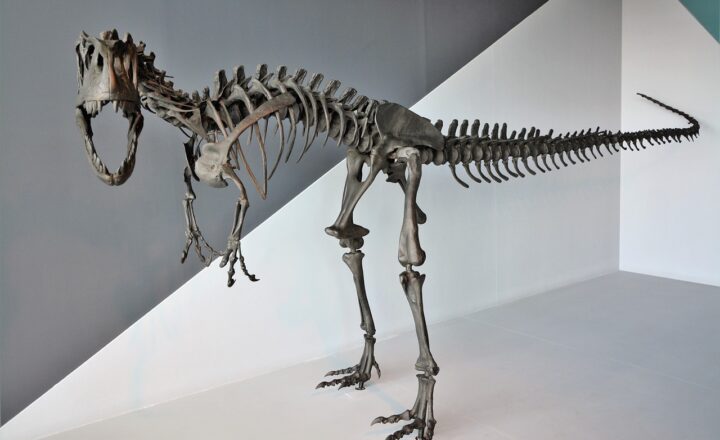The Evolution of Human Intelligence: How Homo sapiens Developed Unique Cognitive Skills
November 14, 2024

The journey of human intelligence is a fascinating narrative woven through the ages. As Homo sapiens, we stand apart from the animal kingdom, not simply because of our physical traits, but due to our unique cognitive abilities. This article explores how these unique skills developed, the milestones in this evolutionary process, and what it means for our future.
1. Understanding Intelligence: Defining Human Uniqueness
Intelligence can be broadly defined as the capacity to learn, understand, and apply knowledge to adapt to new situations. Unlike other species, Homo sapiens have exhibited a significant ability to reason abstractly, plan for the future, and solve complex problems.
Specific characteristics that define human intelligence include:
- Problem-solving skills: The human ability to come up with innovative solutions to novel challenges.
- Language and communication: The complex use of symbols and syntax to convey ideas and emotions, facilitating social collaboration and education.
- Abstract thinking: The ability to conceptualize complexities that aren’t directly tied to immediate experiences or tangible elements of the world.
- Self-awareness: Humans possess an understanding of their existence, thoughts, and emotions, which contributes to introspection and personal growth.
These traits have guided the evolution of Homo sapiens, allowing us to navigate the complexities of our environments and ultimately dominate the planet.
2. The Evolutionary Path of Human Intelligence
The evolution of human intelligence can be tracked through several key milestones that provide insight into how our cognitive skills developed:
2.1 The Emergence of the Genus Homo
Signs of enhanced cognitive function began with the emergence of the genus Homo around 2.5 million years ago. Our ancestors started creating stone tools in a more sophisticated manner than their predecessors. This marked a shift in cognitive skills, as planning, foresight, and problem-solving became essential in developing and utilizing tools effectively.
2.2 The Development of Social Structures
The evolution of social structures played a crucial role in the development of human intelligence. Living in groups necessitated improved communication, empathy, and social cooperation, which fostered cognitive abilities. As humans learned to share knowledge and experiences, complex ideas could be formulated, leading to advances in technology and culture.
2.3 Language Acquisition and its Impact
Language drastically changed the way humans interact and learn. Around 100,000 years ago, the emergence of modern language made it easier to pass on knowledge across generations. This communication tool allowed Homo sapiens to articulate concepts, build social networks, and enhance cooperative hunting and gathering, solidifying shared knowledge which further propelled cognitive evolution.
2.4 The Cognitive Revolution
The Cognitive Revolution, occurring roughly 70,000 years ago, is often associated with the ability to create complex societies, advance technologies, and develop art and culture. This period saw an explosion of creativity and abstract thought, spurring the development of myths, religion, and ideologies that integrated communities and provided frameworks for understanding the world.
3. Neural Correlates of Human Intelligence
One of the keys to understanding the evolution of human intelligence lies in our physiology, particularly our brain structure. While many mammals possess significant brain capacities, human brains exhibit unique features that enhance cognitive capabilities.
3.1 The Expanded Neocortex
The neocortex is the part of the brain responsible for higher-order brain functions such as sensory perception, cognition, and reasoning. Humans have a larger neocortex relative to body size compared to other species, contributing to our advanced problem-solving abilities and social intelligence.
3.2 Enhanced Connectivity and Brain Plasticity
Human brains also showcase high connectivity among different regions, promoting speedier information processing and collaboration across various cognitive functions. Furthermore, greater neural plasticity allows humans to adapt structurally and functionally in response to learning experiences, facilitating complex thoughts and creativity.
4. The Influence of Environment on Cognitive Development
The evolution of human intelligence was intricately influenced by environmental factors. From climate shifts to resource availability, these elements played a pivotal role in shaping cognitive skills:
4.1 Adaptation to Diverse Environments
As Homo sapiens migrated and adapted to various environments, survival necessitated the evolution of problem-solving strategies and innovative thinking. From hunting practices to tool-making, the challenges posed by new climates and terrains drove cognitive enhancement.
4.2 The Role of Culture and Technology
Cultural advancements have continually influenced human intelligence. The inventions and discoveries throughout history, including agriculture, writing, and technological advancements, have not only demonstrated intelligence but also perpetuated it by fostering further innovation, collaboration, and shared learning.
5. Future Directions: The Next Evolution of Intelligence
As we reflect on the evolution of human intelligence, it’s crucial to consider its future trajectory. With advancements in artificial intelligence, biotechnology, and cognitive enhancement potential, our understanding and definitions of intelligence may continue to evolve:
5.1 Brain-Computer Interfaces
Emerging technologies, like brain-computer interfaces, promise to augment human cognitive capabilities. Such devices may enable direct communication between human brains and computers, potentially unlocking unprecedented cognitive potentials.
5.2 Continued Adaptation and Evolution
Humanity has proven incredibly adaptive throughout our journey. As environmental pressures continue to shift—be it climate change, societal evolution, or technological advancements—the evolution of our intelligence is likely to follow suit, resulting in new forms of cognition and collaboration.
Conclusion
In understanding the evolution of human intelligence, we gain insight into not only our past but also our potential future. The cognitive skills that define Homo sapiens did not develop in isolation; they resulted from an intricate interplay of biological evolution, environmental pressures, and social dynamics. As we move forward, the challenge will be to navigate the ethical implications of enhancing our cognitive abilities, fostering a future where intelligence continues to flourish in ways that benefit society as a whole.
In essence, while the roots of human intelligence can be traced back through our evolutionary history, the journey is far from over. With each passing generation, we have a unique opportunity to shape the evolution of intelligence in meaningful, impactful ways.







